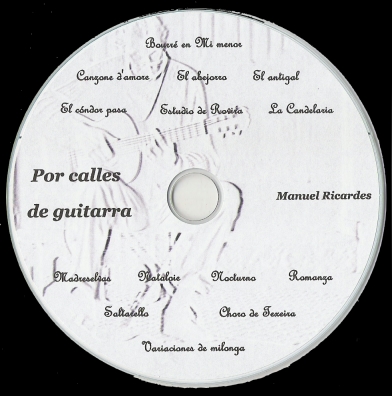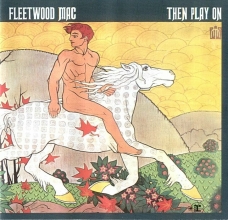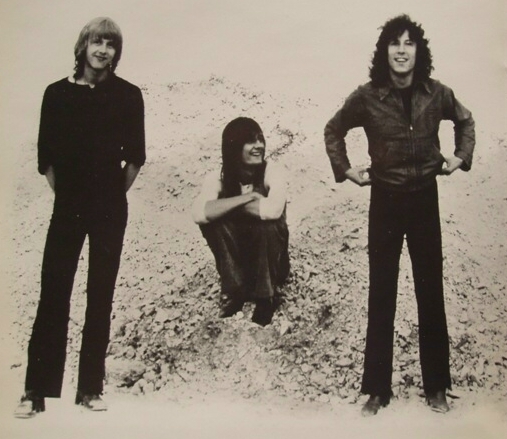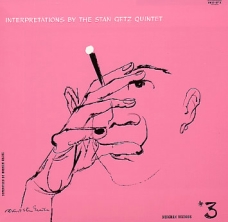| Site menu |
|
 |
| Search |
|
 |
| Our poll |
|
 |
| Statistics |
Total online: 1 Guests: 1 Users: 0 |
 |
| Login form |
|
 |
|
Main » 2011 » August » 27
 Manuel Ricardes is a more or less unknown spanish street musicians, who´s a real fantastic guitar player. He has a very special feeling for tango music and every night he sit in a corner of a street a play his fantastic music. I met him during my last vactions in Bilbao/Spain. Manuel Ricardes is a more or less unknown spanish street musicians, who´s a real fantastic guitar player. He has a very special feeling for tango music and every night he sit in a corner of a street a play his fantastic music. I met him during my last vactions in Bilbao/Spain.
I was very impressed by his way of playing the acoustic guitar. His repertoire has many colors and it´s up to you to explore and enjoy these different styles of acoustic music.He told me about the record that it was recorded in 2003 and this is his music he played on the streets of spanish cities.
Together with Beatriz Arbenoiz he although played in small music clubs all over Spain and try to keep the flame of tango music alive !This entry is dedicated to the street musicians all over the world who gave us so much pleasure by their way to entertain us during our shopping tours through a city.
Personnel:Manuel Ricardes (guitar)Tracklist:01. Bourre (Bach) 2.4002. Canzone d´amore (Liebermann) 2.0703. El abejorro (Pujol) 1.5704. El antigal (Toro/Diaz) 3.4505. El Condor Pasa (Traditional) 4.5206. Estudio de rovira (Traditional) 2.5407. La candelaria (Falú) 3.2408. Madreselvas (Amadoro/Canaro) 2.3609. Natalie (Moustaki) 1.3110. Nocturno (Soulés) 3.4011. Romanza (Soulés) 4.3012. Saltarello (Traditional) 1.0113. Choro de texeira (Traditional) 2.1214. Variaciones de milonga (Falú) 4.09
Views:
12640
|
Added by:
Riffmaster
|
Date:
2011-08-27
|
|
 Gerald Jay Markoe studied classical music at both Juilliard (B.A.) and the Manhattan School of Music (M.A.). Since the early 1960s, Markoe
has studied meditation and astrology, and he specialized in translating
the positions of the planets into music, often recording custom tapes
based on a person's astrological sign. His first public album in 1988
was Music from the Pleiades, inspired by the famous poster of the
constellation. Markoe
formed his own music company, AstroMusic, to distribute his album, and
Music from the Pleiades quickly became a bestseller in the New Age
market. Gerald Jay Markoe studied classical music at both Juilliard (B.A.) and the Manhattan School of Music (M.A.). Since the early 1960s, Markoe
has studied meditation and astrology, and he specialized in translating
the positions of the planets into music, often recording custom tapes
based on a person's astrological sign. His first public album in 1988
was Music from the Pleiades, inspired by the famous poster of the
constellation. Markoe
formed his own music company, AstroMusic, to distribute his album, and
Music from the Pleiades quickly became a bestseller in the New Age
market.
I've been on the quest for good sacred space/meditation music for
quite some time. I took a risk since, I really couldn't tell by the
sound bytes if I'd like it. I brought it home, lit some incense,
candles and got comfortable whilst I pressed 'play'. For me, it was
like magic. "At first, the metallic-stringed harp reminded me of
Japanese music, but as the album moves along, there's something not
quite Asian, African or Middle Eastern -- but definitely mystical. I
would think Markoe tapped into the "Eternal Now" so aptly put on the
first track of the CD. My small, cramped bedroom was turned into a
temple and I, its priestess. Well done! The great thing is that each
track can apply to a specific ritual or practice and their names reflect
that. The first song, I used for meditation (simply programmed to
repeat over and over). The next one is great for morning or "pre-dawn
devotion" as described and so on. Quite versatile and yet it doesn't
command one's attention, so you can easily meditate, sleep, do yoga or
journal to it without being mesmerized by the melodies. (by N. Mentor)
Personnel:
Gerald Jay Markoe (all instruments)Tracklist:
1. Entering The Eternal Now (Markoe) 7.14
2. Pre Dawn Meditation (Markoe) 7.24
3. Sacred Ceremony (Markoe) 4.57
4. Ancient Sunrise (Markoe) 7.15
5. Egyptian Shaman (Markoe) 7.46
6. Initiation (Markoe) 7.04
7. Sacred Movements (Markoe) 8.03
8. Egyptian Magic (Markoe) 6.12
9. Immortality (Markoe) 7.51
ARMU 0068
Views:
1364
|
Added by:
Riffmaster
|
Date:
2011-08-27
|
|
 This Peter Green-led edition of the Mac
isn't just an important transition between their initial blues-based
incarnation and the mega-pop band they became, it's also their most
vital, exciting version. The addition of Danny Kirwan as second guitarist and songwriter foreshadows not only the soft-rock terrain of "Bare Trees" and "Kiln House" with Christine Perfect-McVie, but also predicts Rumours. That only pertains to roughly half of the also excellent material here, though; the rest is quintessential Green.
The immortal "Oh Well," with its hard-edged, thickly layered guitars
and chamber-like sections, is perhaps the band's most enduring
progressive composition. "Rattlesnake Shake" is another familiar number,
a down-and-dirty, even-paced funk, with clean, wall-of-sound guitars.
Choogling drums and Green's fiery improvisations power "Searching for Madge," perhaps Mac's
most inspired work save "Green Manalishi," and leads into an unlikely
symphonic interlude and the similar, lighter boogie "Fighting for
Madge." A hot Afro-Cuban rhythm with beautiful guitars from Kirwan and Green on "Coming Your Way" not only defines the Mac's sound, but the rock aesthetic of the day. Of the songs with Kirwan's
stamp on them, "Closing My Eyes" is a mysterious waltz love song;
haunting guitars approach surf music on the instrumental "My Dream";
while "Although the Sun Is Shining" is the ultimate pre-Rumours number someone should revisit. Blues roots still crop up on the spatial, loose, Hendrix-tinged
"Underway," the folky blues tale of a lesbian affair on "Like Crying,"
and the final outcry of the ever-poignant "Show Biz Blues," with Green moaning "do you really give a damn for me?" Then Play On is a reminder of how pervasive and powerful Green's influence was on Mac's
originality and individual stance beyond his involvement. Still highly
recommended and a must-buy after all these years, it remains their
magnum opus. This Peter Green-led edition of the Mac
isn't just an important transition between their initial blues-based
incarnation and the mega-pop band they became, it's also their most
vital, exciting version. The addition of Danny Kirwan as second guitarist and songwriter foreshadows not only the soft-rock terrain of "Bare Trees" and "Kiln House" with Christine Perfect-McVie, but also predicts Rumours. That only pertains to roughly half of the also excellent material here, though; the rest is quintessential Green.
The immortal "Oh Well," with its hard-edged, thickly layered guitars
and chamber-like sections, is perhaps the band's most enduring
progressive composition. "Rattlesnake Shake" is another familiar number,
a down-and-dirty, even-paced funk, with clean, wall-of-sound guitars.
Choogling drums and Green's fiery improvisations power "Searching for Madge," perhaps Mac's
most inspired work save "Green Manalishi," and leads into an unlikely
symphonic interlude and the similar, lighter boogie "Fighting for
Madge." A hot Afro-Cuban rhythm with beautiful guitars from Kirwan and Green on "Coming Your Way" not only defines the Mac's sound, but the rock aesthetic of the day. Of the songs with Kirwan's
stamp on them, "Closing My Eyes" is a mysterious waltz love song;
haunting guitars approach surf music on the instrumental "My Dream";
while "Although the Sun Is Shining" is the ultimate pre-Rumours number someone should revisit. Blues roots still crop up on the spatial, loose, Hendrix-tinged
"Underway," the folky blues tale of a lesbian affair on "Like Crying,"
and the final outcry of the ever-poignant "Show Biz Blues," with Green moaning "do you really give a damn for me?" Then Play On is a reminder of how pervasive and powerful Green's influence was on Mac's
originality and individual stance beyond his involvement. Still highly
recommended and a must-buy after all these years, it remains their
magnum opus.

Mick Fleetwood (drums)
Peter Green (guitar, vocals)Danny Kirwan (guitar, vocals)
John McVie (bass)
Jeremy Spencer (guitar, vocals)
+
Big Walter Horton (harmonica)Tracklist:
01. Coming Your Way (Kirwan) 3.47
02. Closing My Eyes (Green) 4.50
03. Showbiz blues (Green) 3.50
04. My Dream (Kirwan) 3.30
05. Underway (Green) 2.51
06. Oh Well (Green) 8.56
07. Although The Sun Is Shining (Kirwan) 2.31
08. Rattlesnake Shake (Green) 3.32
09. Searching For Madge (McVie) 6.56
10. Fighting For Madge (Fleetwood) 2.45
11. When You Say (Kirwan) 4.22
12. Like Crying Like Dying (Kirwan) 2.21
13. Before The Beginning (Green) 3.28ARMU 0067
Views:
1422
|
Added by:
Riffmaster
|
Date:
2011-08-27
|
|
 When the first two "Interpretations" albums by the Stan Getz quintet
proved so successful, the next step obviously was to follow the pattern
and this — as you must have gathered by now — was indeed done. What gave
the first two "Interpretations" their standout quality, most critics
agreed, was the unity of the five musicians as well as the topflight
musicianship of all concerned. There is especially solid rapporti
between the two featured soloists —Stan Getz, tenor saxophone, and Bob
Brookmeyer, trombone. and one of the reasons for this could be the year
which Brookmeyer spent with the Getz unit in 1953. This was a highly
profitable year for both in terms of musical growth. ("The only way you
learn," Getz once said, "is by playing with the best — so that there's
always two challenges; first, your own inner challenge and then the
fecling of being spurred by men who swing in your own outfit.") Getz, of
course, has long been regarded as one of the foremost tenor men in
modero jazz, a suspicion which first took hold strongly when he (with
Zoot Sims, Serge Chaloff and Herbie Steward) provlded Woody Herman with
the "Four Brothers" round. It was Getz whose solo gave much meaning to
Herman's recording of the Ralph Burns composition, "Early Autumn". Since
then he has been occupied largely with leading his own group, in most
cases a quintet. When the first two "Interpretations" albums by the Stan Getz quintet
proved so successful, the next step obviously was to follow the pattern
and this — as you must have gathered by now — was indeed done. What gave
the first two "Interpretations" their standout quality, most critics
agreed, was the unity of the five musicians as well as the topflight
musicianship of all concerned. There is especially solid rapporti
between the two featured soloists —Stan Getz, tenor saxophone, and Bob
Brookmeyer, trombone. and one of the reasons for this could be the year
which Brookmeyer spent with the Getz unit in 1953. This was a highly
profitable year for both in terms of musical growth. ("The only way you
learn," Getz once said, "is by playing with the best — so that there's
always two challenges; first, your own inner challenge and then the
fecling of being spurred by men who swing in your own outfit.") Getz, of
course, has long been regarded as one of the foremost tenor men in
modero jazz, a suspicion which first took hold strongly when he (with
Zoot Sims, Serge Chaloff and Herbie Steward) provlded Woody Herman with
the "Four Brothers" round. It was Getz whose solo gave much meaning to
Herman's recording of the Ralph Burns composition, "Early Autumn". Since
then he has been occupied largely with leading his own group, in most
cases a quintet.
Bob Brookmeyer, who incidentally studied piano at Kansas City
Conservatory, is one of the few and also just about the finest valve
trombonists around today. He has played with such groups as Gerry
Mulligan's and Terry Gibbs' as well as tours (as a pianist) with Tex
Beneke, Ray McKinley and Louis Prima. A man of extraordinarily wide
range of expression, Brookmeyer has an equally good reputation as an
arranger and composer. (One of Brookmeyer's selections, "Oh, Sane
Snavely" is included in this album.) Pianist Johnny Williams, out of
Windsor, Vt., has been a member of the Getz unit in addition to playing
with Charlie Barnet's band. An Army Air Forces veteran of World War II,
drummer Frank Isola has also played with the Mulligan and Getz groups in
the past, while the quintets bassist, Teddy Kotick, has largely
confined his work to the East, including appearances with the great alto
sax artist, Charlie "Bird" Parker.
For no calculated reason, the selections on the A side are taken from
three separate eran.— "The Varsity Drag", to begin with, is a tune
associateti with the ebullient 1920s; Duke Ellington's "lt Don't Mean a
Thing If It Ain't Got That Swing" is, of course, from the Swing Era—the
1930s. "Give Me the Simple Life" was popular in the mid-1940s, shortly
alter the end of the war when the simple lite was every ex-GI's happy
hope. The B side includes an evergreen standard, "I´ll Remember April"
along with the aforementioned Brookmeyer original.
Los Angeles CA, July 30, 1953 and November 4, 1954 Personnel:
Stan Getz, tenor saxophone;
Bob Brookmeyer, valve trombone;
John Williams, piano;
Bill Anthony or Teddy Kotick, bass;
Frank Isola, drums
Tracklist:
01. It Don´t Mean A Thing (If It Ain´t Got That Swing) (Ellington) 6.22
02. The Varsity Drag (Henderson) 7.01
03. Give Me The Simple Life (Ruby/Bloom) 5.59
04. I´ll Remember April (DePaul) 11.01
05. Oh, Shane Snavely (Brookmeyer) 6.16ARMU 0066
Views:
1173
|
Added by:
Riffmaster
|
Date:
2011-08-27
|
| |
|
|
| Entries archive |
|
 |
| Site friends |
Coming soon
|
 |
| Tag Board |
|
|

|


|



